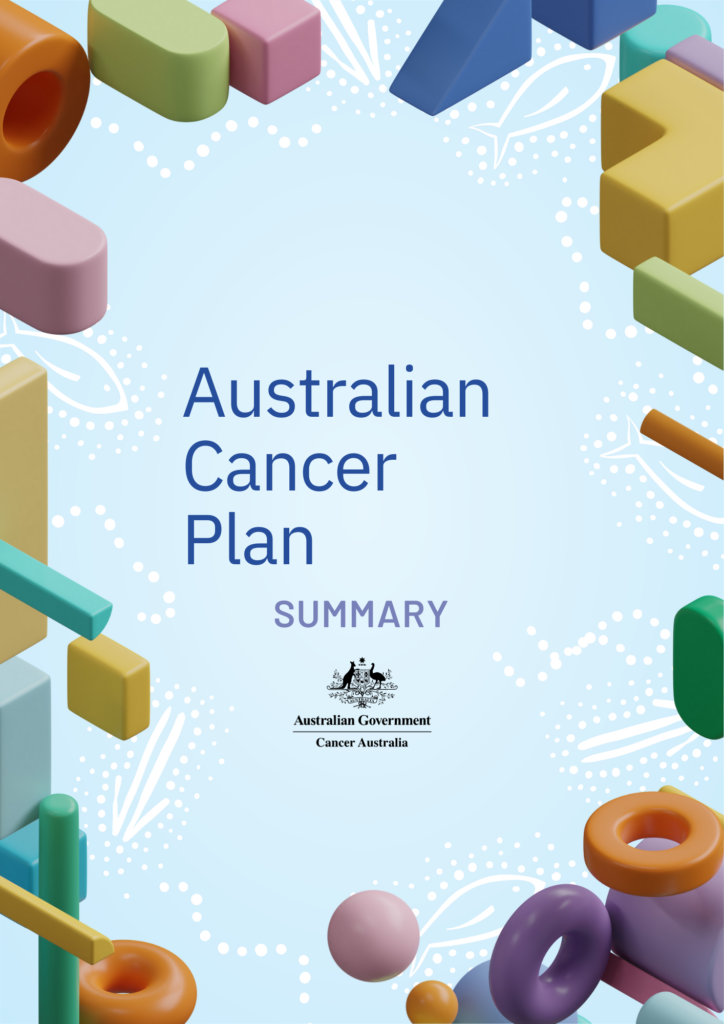Cancer and neoplasms
New cancer plans focus on Aboriginal health and priority populations
Although cancer care has improved dramatically in Australia over the past few decades, two new cancer plans have been unveiled focusing on improving outcomes for priority population groups and Aboriginal and Torres Strait Islander peoples.
Two new cancer plans, one launched by the Australian Government and the other developed by the peak body for Aboriginal and Torres Strait Islander health, the National Aboriginal Community Controlled Health Organisation (NACCHO), aim to improve the cancer experiences of population groups who have the worst cancer outcomes.
The two plans were announced in the past fortnight and hope to prevent Australians most at risk from “falling through the cracks”.
Australian Cancer Plan
The country’s first Australian Cancer Plan, developed by the Australian Government’s cancer control agency Cancer Australia, has ten-year ambition statements for each of its six strategic objectives, aiming to enhance the experiences and outcomes of all Australians affected by cancer.
The plan was commissioned by former Minister for Health, the Hon Greg Hunt MP, in November 2020, and was announced by Minister for Health, the Hon Mark Butler MP on Thursday 2 November.
Speaking in a podcast with the Medical Journal of Australia, Cancer Australia CEO, Professor Dorothy Keefe, said the plan sets out improvements and actions that can be made to improve Australia’s cancer control system.
“There’s a need for an overarching view,” Professor Keefe said.
“This isn’t a plan to replace the state and territory plans. This is a plan to embrace them all, so that we can actually do the things together that are better done together and enable the jurisdictions to continue doing the great work that they do”.
The plan focuses on improving experiences and outcomes for priority population groups and improving outcomes for people with low survival tumours, Professor Keefe said.
“It’s true that the further away from the city you live the less good your cancer outcomes are,” Professor Keefe said.
“Belonging to particular population groups [also] makes a difference to your outcomes for cancer and I think there’s been a lot of news recently about the gap in cancer outcomes widening between Aboriginal and Torres Strait Islander peoples and non-Indigenous people.
That’s partly because the outcomes are getting better for non-Indigenous people, but it’s also because the incidence is increasing in Aboriginal and Torres Strait Islander people and the survival is actually not increasing and potentially getting a bit worse.”
The plan also recommends ways to improve a person’s journey through the health care system.
“There’s a lot of things that going on in the so-called ‘mainstream health system’, where we need to improve things,” Professor Keefe said.
“We need to reduce gaps between appointments.
“We need to enable people to be engaged in the system, we need to provide better communication and treatment for their particular cancers.
“[The plan] focuses particularly on Aboriginal and Torres Strait Islander health outcomes, but also on other priority populations, such as people with a disability, [people with] mental health [conditions], and LGBTIQ [people].”
Organisations involved in the cancer care system are invited to work with Cancer Australia to help improve people’s experiences and outcomes.
“What we’re doing with the implementation is we’re issuing an invitation to the sector and the invitation says ‘here is what we need to do in the next ten years as a cancer sector to deliver the best outcomes for everybody’ and ‘how would you like to partner with us?’
“We need to make sure that that everyone is enabled to have those wonderful outcomes that the most advantaged have.
“The plan sets out a national reform agenda and will need joint efforts.”
Cancer Australia has started working on several actions identified in the plan, including setting up a National Comprehensive Cancer Network and crafting national frameworks for Optimal Care Pathways and Genomics in Cancer Control.
Aboriginal and Torres Strait Islander Cancer Plan
Separately, a new cancer plan for Aboriginal and Torres Strait Islander peoples has been developed by NACCHO.
The plan, which was codesigned with the Aboriginal health sector, aims to change cancer experiences of Aboriginal and Torres Strait Islander peoples.

“Consultations highlighted the need to focus on structural reform including sustainable funding, increasing accessibility of services and ensuring mainstream cancer centres are culturally safe and responsive,” NACCHO said in a statement.
“NACCHO also learned from the lived experience of Aboriginal and Torres Strait Islander individuals, their families and Community leaders.”
The plan acknowledges the goals of the broader Australian Cancer Plan in improving Aboriginal health outcomes.
“By working together, these two plans will achieve better outcomes for more Aboriginal and Torres Strait Islander peoples, their families and Communities at a faster pace,” Dr Dawn Casey, deputy Chief Executive Officer of NACCHO wrote in the plan.
The plan establishes several objectives including:
- shared decision making and partnerships at all levels of the health care system and community;
- culturally informed, “whole of community” health promotion to change the cancer narrative and raise awareness;
- higher Indigenous participation rates in cancer screening services;
- culturally safe mainstream health services; and
- stronger information systems, including Indigenous data sovereignty.
The plan also calls for improved cultural competency across the Australia’s health care workforce.
“A health workforce that can appropriately and respectfully support the cultural needs of Aboriginal and Torres Strait Islander peoples must be enabled to ensure access to optimal cancer care,” the plan stated.
Figures show that cancer and other neoplasms were the leading cause of death for Indigenous Australians, accounting for 3612 deaths (about 23% of total deaths). The most common causes of death due to cancer were cancers of the digestive (30%; eg, liver cancer) and respiratory organs (26%; eg, lung cancer) (here).
Read the Australian Cancer Plan
Read the Aboriginal and Torres Strait Islander Cancer Plan
Subscribe to the free InSight+ weekly newsletter here. It is available to all readers, not just registered medical practitioners.

